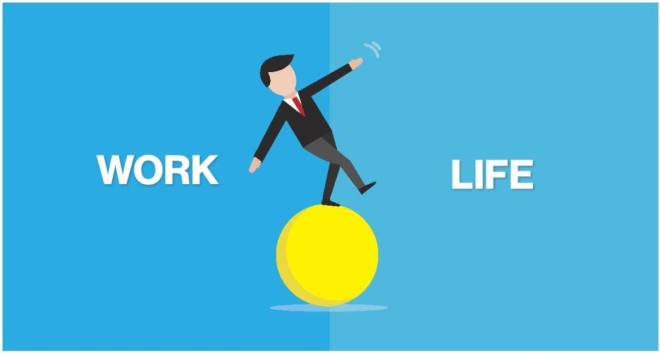
Unless you’ve been hiding under a rock of late, I suspect you are well aware of the rise of the attorney wellness movement within our profession. Now, don’t get me wrong. I’m not here to challenge the importance and value of all that’s going on. While I will admit I’m having a hard time wrapping my head around this mindfulness thing, and when it comes to yoga, well let’s just say I’m more comfortable in the weight room, I do deeply believe our profession is in a crisis, in part, for want of attorney wellness.
For years so many, myself included, have talked about the importance of trying to find a healthy balance between one’s work life and one’s personal life as part of the answer to this crisis. Those who tried and succeeded did so believing that, once there, all would be good with the world. I’m not buying it anymore, and with this post, I am publicly stating I will never encourage anyone to try to find a healthy work-life balance again!
Why the change? It’s a fair question. It’s because I started to think about the word wellness and words matter. This word “wellness” directs our focus toward an overall state of well-being. Contrast that to the phrase “a healthy work-life balance.” This phrase presupposes that there is a difference between one’s work life and one’s personal life. It suggests one’s work life is always going to be unhealthy in some fashion and one’s personal life is always going to be the healthier of the two. I’ve come to see the fallacy in this because it simply isn’t true. And, of course, how in the world would finding balance between two separate parts of anyone’s life make one healthy? In my mind, walling off some aspect of anyone’s life by using the word “work” and then telling that person to find a way to bring balance into the equation so that the unhealthy aspects of work can be made tolerable is just plain nuts. How would that lead to a state of well-being? It won’t.
Segmentation and finding balance aren’t the answer. If you’ve been trying to find balance in your life or told to start trying, stop, just stop. There’s no inner peace at the end of that journey. At best, you actually do find an ability to tolerate what isn’t healthy at work; but that’s not the same as finding wellness.
I wish I had a simple answer for what to do in place of trying to find a healthy work-life balance; but I don’t. And if you ever come across someone who says they do, do what I would do. Ask them if they forgot to take their medication today because wellness isn’t a quick fix kind of thing. It’s more of a lifelong day after day effort centered around developing and maintaining physical, mental, and emotional health in every aspect of our lives, work included. If you add to this investing in personal relationships with others who are on a similar journey, I feel pretty confident in saying a state of well-being will eventually be in play.
All opinions, advice, and experiences of guest bloggers/columnists are those of the author and do not necessarily reflect the opinions, practices or experiences of Solo Practice University®.





















Comments are closed automatically 60 days after the post is published.